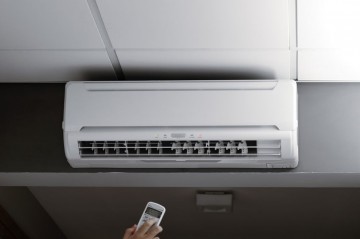Keeping one’s cool is a lot easier when a home stays at a comfortable, pleasant temperature. Even when temperatures outside rise only a little above what might be considered ideal, the climate indoors can start to feel stuffy. AC Systems installed and maintained by companies like Website provide valuable service that makes domestic life far more satisfying and enjoyable. Understanding the basics of how such systems work can make it easier to keep up with any maintenance or other needs that might arise in the course of ownership.
While there are a couple of different kinds in existence, most AC Systems operate according to a single, simple principle. Gases are made up of individual particles that move around in chaotic fashion, with the average speed of the individual bits correlating closely with the overall temperature of the gas. A gas held at a high temperature will, therefore, host particles that move around quickly, while things slow down a lot as the temperature drops.
The energy that allows for that movement has to come from somewhere, and that place will normally be the gas’s surroundings. When a gas that was formerly held under pressure is released into a larger space, it will draw in energy from the environment around it, cooling the air as a result. This simple, reliable reaction is the basis for most air conditioning systems today, with the controlled expansion of a special form of gas within a closed system producing the cool, comfortable air that so many people enjoy.
Allowing for that natural process to happen in an unhindered fashion is therefore what makes for a reliable, useful piece of air conditioning equipment. Any number of things can possibly go wrong along the way, as when a leak means that gas no longer remains trapped and controlled as it should be. Likewise can a failure of a compressor mean that the coolant contained within a system will no longer be put under sufficient pressure, leading to a relatively weak effect as it expands and cools less thereafter. Whatever the particular problem, issues of this kind can normally be traced back to some aspect of this basic process, with solutions following equally as directly. You can follow them on Twitter.







